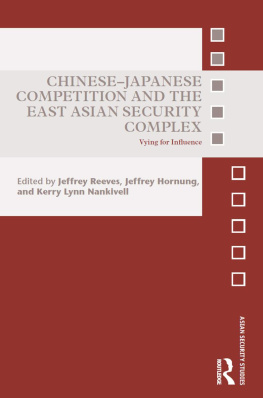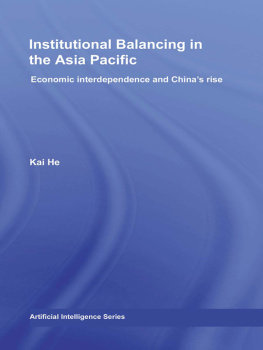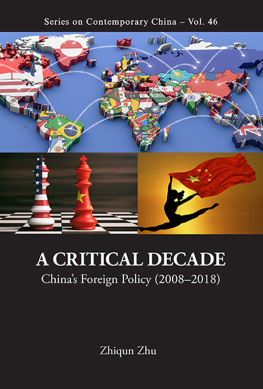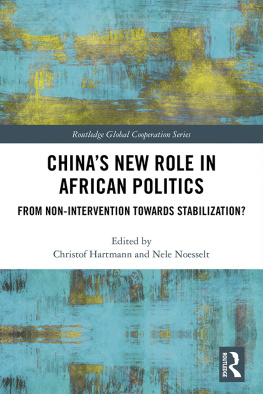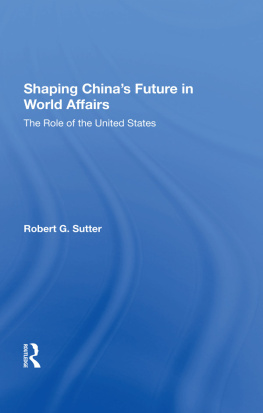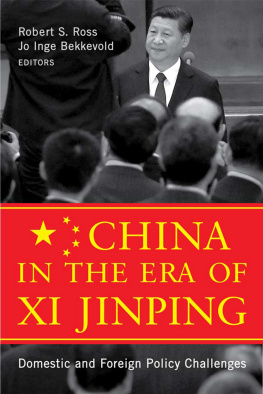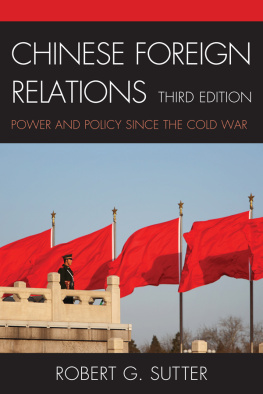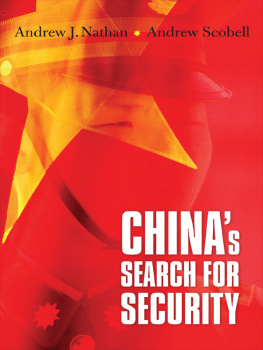Jeffrey Reeves - Chinese Foreign Relations with Weak Peripheral States: Asymmetrical Economic Power and Insecurity
Here you can read online Jeffrey Reeves - Chinese Foreign Relations with Weak Peripheral States: Asymmetrical Economic Power and Insecurity full text of the book (entire story) in english for free. Download pdf and epub, get meaning, cover and reviews about this ebook. year: 2017, publisher: Routledge, genre: Science / Politics. Description of the work, (preface) as well as reviews are available. Best literature library LitArk.com created for fans of good reading and offers a wide selection of genres:
Romance novel
Science fiction
Adventure
Detective
Science
History
Home and family
Prose
Art
Politics
Computer
Non-fiction
Religion
Business
Children
Humor
Choose a favorite category and find really read worthwhile books. Enjoy immersion in the world of imagination, feel the emotions of the characters or learn something new for yourself, make an fascinating discovery.

- Book:Chinese Foreign Relations with Weak Peripheral States: Asymmetrical Economic Power and Insecurity
- Author:
- Publisher:Routledge
- Genre:
- Year:2017
- Rating:3 / 5
- Favourites:Add to favourites
- Your mark:
Chinese Foreign Relations with Weak Peripheral States: Asymmetrical Economic Power and Insecurity: summary, description and annotation
We offer to read an annotation, description, summary or preface (depends on what the author of the book "Chinese Foreign Relations with Weak Peripheral States: Asymmetrical Economic Power and Insecurity" wrote himself). If you haven't found the necessary information about the book — write in the comments, we will try to find it.
This book examines Chinas relations with its weak peripheral states through the theoretical lens of structural power and structural violence.
Chinas foreign policy concepts toward its weak neighbouring states, such as the One Belt, One Road strategy, are premised on the assumption that economic exchange and a commitment to common development are the most effective means of ensuring stability on its borders. This book, however, argues that Chinas overreliance on economic exchange as the basis for its bilateral relations contains inherently self-defeating qualities that have contributed and can further contribute to instability and insecurity within Chinas periphery. Unequal economic exchange between China and its weak neighbours results in Chinese influence over the states domestic institutions, what this book refers to as structural power. Chinese structural power, in turn, can undermine the states development, contribute to social unrest, and exacerbate existing state/society tensionswhat this book refers to as structural violence. For China, such outcomes lead to instability within its peripheral environment and raise its vulnerability to security threats stemming from nationalism, separatism, terrorism, transnational organised crime, and drug trafficking, among others. This book explores the causality between Chinas economically-reliant foreign policy and insecurity in its weak peripheral states and considers the implications for Chinas security environment and foreign policy.
This book will be of much interest to students of Chinese politics, Asian security studies, international political economy and IR in general.
Jeffrey Reeves: author's other books
Who wrote Chinese Foreign Relations with Weak Peripheral States: Asymmetrical Economic Power and Insecurity? Find out the surname, the name of the author of the book and a list of all author's works by series.

